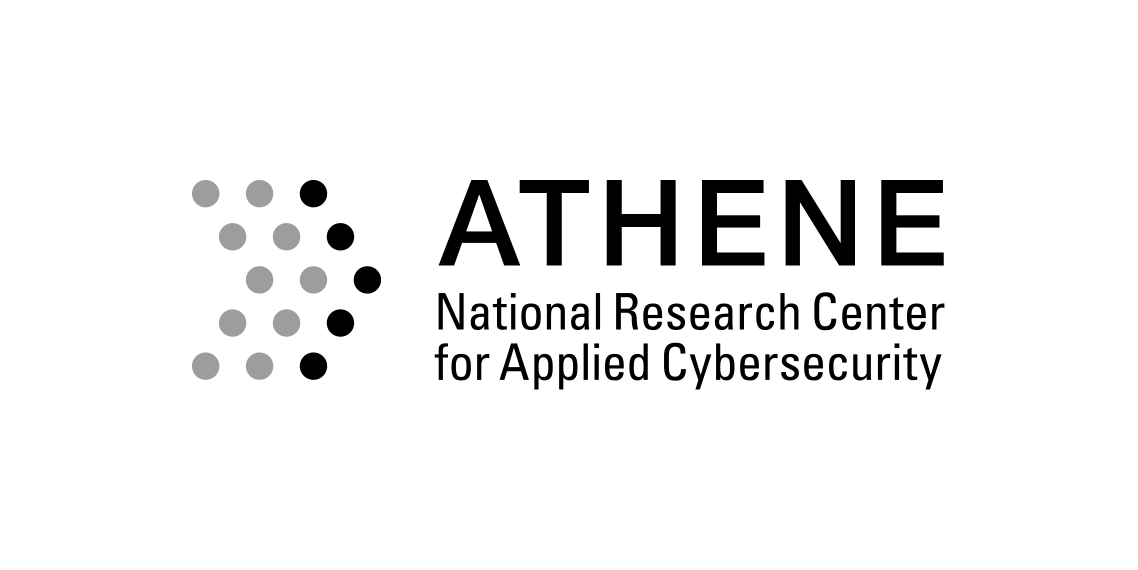The Frankfurt Alliance
The Frankfurt/Rhine-Main science region is characterized by its diversity and innovative strength. To showcase this strength and its importance for society, the Frankfurt Alliance - an alliance of non-university research institutes and Goethe University - invites you to the big “Science Festival”.

All Institutes
In 2024, 16 of these institutions formed the Frankfurt Alliance to deepen their collaborations and strengthen their competitiveness.The participating institutions include:
ATHENE - National Research Center for Applied Cybersecurity
The National Research Centre for Applied Cybersecurity ATHENE accompanies and supports the digital transformation of society, industry and the public sector to improve cybersecurity and data protection. ATHENE is a research center of the Fraunhofer-Gesellschaft with its two institutes SIT and IGD and with the involvement of the universities TU Darmstadt, Goethe University Frankfurt and Darmstadt University of Applied Sciences. With more than 600 researchers, ATHENE is the most prominent cybersecurity research center in Europe and the leading scientific research institution in Germany in this field.

DIPF | Leibniz Institute for Research and Information in Education
The DIPF | Leibniz Institute for Research and Information in Education aims to make a decisive contribution to overcoming key challenges in education and plays a key role in researching them. Our aim is to promote high-quality, responsible, equitable and internationally compatible education. With educational research, digital infrastructure and targeted knowledge transfer, we support science, universities, schools, daycare centers, administration and politics.
The DIPF is a member of the Leibniz Association. Around 370 employees at the Frankfurt am Main and Berlin sites create, communicate and document knowledge about education.
Goethe University Frankfurt
Goethe University is a cosmopolitan workshop for the future situated in the heart of Europe. In 1914, Frankfurt's citizens founded it as an autonomous foundation university, and today it boasts over 40,000 students. It is one of the biggest and strongest research universities in Germany. The university is renowned for its research in six core areas, as well as its diversity in the humanities, social, natural, and life sciences — including medicine.
Fraunhofer Institute for Translational Medicine and Pharmacology ITMP
We are a leading institute in the field of biomedical research and development. Our institute develops new methods for the early detection, diagnosis and treatment of diseases caused by problems in the immune system. We conduct research in three areas: Discovery of new drugs, preclinical research (tests before application in humans) and clinical research (tests in humans).
The 4D concept (Drugs, Devices, Diagnostics, Data) enables us to develop new diagnostic and therapeutic options for immune-mediated and neurodegenerative diseases. We work closely with local universities and clinics at five locations in Germany. The ITMP supports both university medicine and the pharmaceutical industry in translating research findings into practice.
Leibniz-Institut für Finanzmarktforschung SAFE
The Leibniz Institute for Financial Research SAFE stands for "Sustainable Architecture for Finance in Europe." SAFE contributes to strengthening a sustainably structured and resilient financial system that fosters innovation and serves the needs of the economy and society.
In this way, we aim to support European monetary and financial market policy in addressing current challenges.
Paul-Ehrlich-Institut
The Paul-Ehrlich-Institut (PEI), the Federal Institute for Vaccines and Biomedicines, is a senior federal authority reporting to the Federal Ministry of Health (Bundesministerium für Gesundheit, BMG).
The institute, based in Langen near Frankfurt am Main, researches and evaluates biomedical human medicinal products and immunological veterinary medicinal products and approves these medicinal products.
Its own experimental research in the field of biomedicine and life sciences is an indispensable basis for the wide range of tasks.
Senckenberg Gesellschaft für Naturforschung
The Senckenberg Gesellschaft für Naturforschung was founded in 1817 by committed citizens of Frankfurt and is today one of the most important research institutions in the field of biodiversity. It comprises eight research institutes and three natural history museums at eleven locations in Germany; the museum in Frankfurt is one of the largest natural history museums in Europe.
Senckenberg investigates the diversity of life - biodiversity - with its numerous interactions in the Earth system. How does life on Earth interact with the other constituents of our planet, with the atmosphere, water, ice, soil, rock and with us humans? We research the Earth system both in the present and in the future in order to ensure that it is preserved as a basis for our life.
German Cancer Consortium
The German Consortium for Translational Cancer Research (DKTK) is a center of excellence dedicated to identify new therapeutic and diagnostic options. The focus at the Frankfurt/Mainz site is on cell and immunotherapy, where patient-specific immune cells are modified to specifically recognize and kill tumor cells. In diagnostics, methods to study the tumor proteome are used to complement genetic approaches. DKTK Frankfurt collaborates closely with the Goethe University and other partner institutions to improve the quality of patient care.
Max Planck Institute of Biophysics
Alles Leben beginnt mit Zellen, den Grundbausteinen jedes Organismus. In ihrem Inneren finden wir eine beeindruckende Vielfalt an winzigen Proteinen, die alle lebenswichtigen Prozesse steuern – von der nachhaltigen Abfallentsorgung über den effizienten Energiestoffwechsel bis hin zur hochkomplexen Immunantwort.
Am Max-Planck-Institut für Biophysik erforschen wir diese Proteine, um herauszufinden, wie sie aussehen und funktionieren. Mit jedem neuen Detail, das wir entschlüsseln, kommen wir dem Geheimnis des Lebens näher. Unsere Erkenntnisse sind nicht nur faszinierend, sondern auch wertvoll. Denn zelluläre Prozesse zu verstehen hilft uns, Krankheiten zu bekämpfen die Gesundheit zu fördern.
Ernst Strüngmann Institut (ESI) für Neurowissenschaften
The Ernst Strüngmann Institute (ESI) for Neuroscience is an independent research institute specializing in the field of brain research. The researchers at the ESI are working to understand the neural mechanisms that enable our brains to perform higher cognitive functions, such as attention and memory. They observe the simultaneous activity of several cells, circuits or brain sections to find out how their interaction shapes human behavior. The findings contribute to develop approaches for the diagnosis and treatment of neurological and psychiatric diseases such as affective disorders or strokes.
PRIF – Peace Research Institute Frankfurt
PRIF - Peace Research Institute Frankfurt analyzes the causes of international and internal conflicts and looks for ways to resolve them. As one of the leading peace research institutes in Europe, PRIF combines interdisciplinary basic research with the transfer of knowledge to politics, the media and society. Founded in 1970, the institute is a foundation under public law funded by the federal government and the state of Hesse and has been a member of the Leibniz Association since 2009.
Dialogue with society and politics is particularly important to us. We provide background knowledge for ministries, political parties, non-governmental organizations, companies and the media. We also provide experts for events and are involved in political education.
GSI Helmholtzzentrum für Schwerionenforschung GmbH / Facility for Antiproton and Ion Research in Europe (FAIR GmbH)
The GSI Helmholtzzentrum für Schwerionenforschung in Darmstadt operates a unique accelerator facility for ions. Researchers from around the world use this facility for experiments that help them make fascinating discoveries in basic research. They are also developing new applications in medicine and technology.
The new international accelerator center FAIR, one of the largest research projects in the world, is currently under construction in Darmstadt. At FAIR, matter that usually only exists in the depth of space will be produced in a lab for research. Scientists from all over the world will be able to gain new insights into the structure of matter and the evolution of the universe from the Big Bang to the present.
Max-Planck-Institut for Legal History and Legal Theory
The Max Planck Institute for Legal History and Legal Theory provides a forum for reflecting on law. We explore its theory and history in a comparative and global perspective in order to address the challenges faced by society today. Our mission is to contribute to knowledge in the field of law, the humanities and social sciences with insights on law and normativity grounded in historical and theoretical reflections.
Our research horizons have been expanding since 1964. Today, we use comparative and global perspectives to question European assumptions. More than 70 researchers from different world regions work together in three Departments and two Max Planck Research Groups.